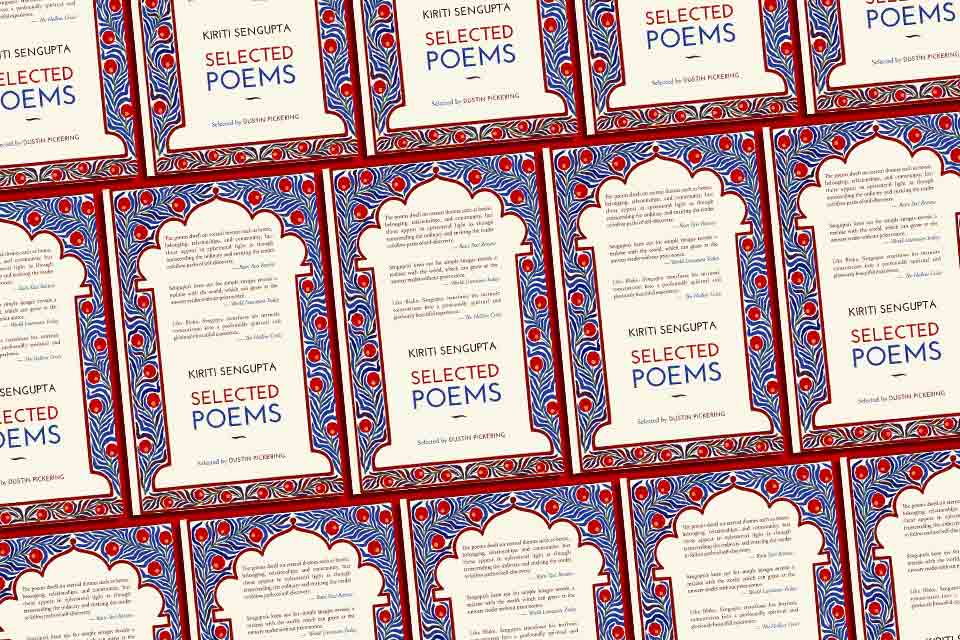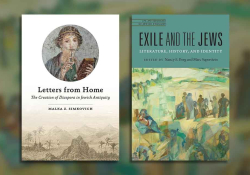A Bustling-Personal Renegade against Fake Anonymity: Kiriti Sengupta’s Selected Poems

There is a kind of natural unraveling in Kiriti Sengupta’s poetry that, while complex, feels as effortless as the silence after separation: provocatively serene as a Tagorean sketch, as playful as worn-out cigarette butts in the banter of the battered metropolis, and as quietly moving as the ritual practice of a long-lost tune at a late-night adda. Sengupta’s Selected Poems (2025), published by Houston-based Transcendent Zero Press, is anachronistically modern. But what is modern? As T. S. Eliot claims, it is “an original way of assembling the most disparate and unlikely material to make a new whole.”
In offering this “new whole,” Sengupta is revealing and poised. With Selected Poems, he signs a truce with journeying destitution. This destitution is, figuratively, his mapped life, which is both personal and political. A poetic career spanning over fourteen years has led to the evolution of his thought process. His cadence and phrases convey themes of ritual, household relationships, dissatisfaction, and harmful obsessions, which do not offer a didactic manifesto but a more renegade spiritual promenade.
In this spiritual defiance, Sengupta’s language seems to have undergone an abrupt, lucid metamorphosis; he feels almost like a fly in the ointment as he asks,
For years, I’ve been searching
for the flavors
of birth and death.
Do they exude the same?
(“The Source”)
Flavor is one of the recurring aspects in Sengupta’s poetry; it would be just to call his use of this word a sensory manipulation. He does not passively let the objects do the talking, but he himself takes an active part in it. The poem “Souvenir” from Water Has Many Colors illustrates the term’s usage in a complex, layered form of intimacy, connection, and memory.
Newborn glued to gut,
flavors of the first liaison
(“Souvenir”)
Household matters invariably make their way into his writing, infusing his ruminating tone with the microcosmic chaos of the macrocosmic world. As he says,
After marriage, it has always been my wife. Now, I have reached an understanding. I no longer seek company. To my complete bewilderment, if the ghost appears, I’ve decided to offer it a chair first, and then I’ll plead, “Take a seat and relax! Let us share our stories.” (“In Conversation With”)
Household matters invariably make their way into Sengupta’s writing, infusing his ruminating tone with the microcosmic chaos of the macrocosmic world.
The passage of time is clearly visible in the marriage. Sengupta is not waiting for the turning hourglass to break it; instead, he keeps it far away and suggests embracing (and not counting) the stories he and his wife have lived. A dialogue: always the beginning of something. A civilization, evolution, or mutation, whatever it may be, a dialogue stands as the inception of a community. Now, as we pass, we restore our faith in the divine spirit or order. But Sengupta does not outright shy away from it. He overtly writes about his failure to adhere to his enlightened master. What is striking here is that the poet uses failure as a figurative deus ex machina:
I turned back as I failed.
I could not hold the grains
on my big toes.
God remained thumb-sized
with dusty feet.
(“In Dusty Feet”)
To accept the pettiness in the face of the master’s order is no small joke. Even Paul Thomas Anderson, in his movie The Master, says: “If you figure a way to live without serving a master, any master, then let the rest of us know, will you? For you'd be the first person in the history of the world.” Sengupta acknowledges that, but what he focuses on is his failure to obey or adhere. And with the master comes another word that cannot be avoided, power. Sengupta does question the power in one of his raging pieces:
Monarch keeps a vigil,
foreseeing a mass mutiny.
Iniquity is ignored
as the records stand revised
for scrutiny.
(“Demonstration”)
He wrote this in response to the injustice of the doctor who was raped and killed on August 9 at RG Kar Medical College, Kolkata. In this poem, Sengupta reiterates how justice falls prey to an endless loop of revisions and reviews, which ultimately prove futile. The “monarch” orchestrating the “vigil” is merely an eyewash for subpoenaing obscurity.
With his Selected Poems, Sengupta goes back and forth on a trail that is bumpy and smooth. But the plethora of poems from My Glass of Wine (2013), The Reverse Tree (2014), Healing Waters Floating Lamps (2015), The Earthen Flute (2016), Reflections on Salvation (2016), Solitary Stillness (2017; reviewed in WLT), Rituals (2019), Water Has Many Colors (2022; reviewed in WLT), and Oneness (2024) are not weary, ornamented pieces in the name of so-called performance poetry. The poems are a performance. Sengupta quotes the veteran theater/film actress Ratna Pathak Shah, “Doing plays nowadays is difficult. Only crazy people attempt them. . . . It’s necessary to offer free shows to draw an audience; otherwise, there must be free tickets.” The quote emphasizes that the performative angle of Sengupta’s poems is not representative of glitz and glamor, but spatial odor. Had he not believed this, therefore, he would not have penned,
Cigarette butts stick out from the water jar . . . the filth radiates an intimate odor. (“Comeback”)
The intimacy of odor is not just a literal metaphor for him. Instead, it is the topography of odor that moves and shifts, causing the poems to occur across different spaces and times, paving the way for the performative aspect of his philosophy. From this performative perspective, he asks a profound question in his poem “Stagecraft”: What if we are not applauded, do we still seek approval? Of course, humans desire some form of appreciation—whether in life, love, achievements, or other areas, as he suggests.
Blame your luck, but did you deliver your best? Salvation is but enlightenment, achievable only through actions and your sensory gateways. (“Stagecraft”)
Selected Poems reflects a life still unfolding, a journey that leaves a lasting impression on the reader. It is remarkable that Sengupta can balance humility with meticulous detail, solemnity with openness. As the publisher, Dustin Pickering, writes in his note, “I carefully selected poems not as a ‘best of’ compilation but as one that reflects these qualities of Sengupta as a poet evolving with and within our times. In one critical essay, I suggested Sengupta is a democratic voice who embraces the right to challenge consensus.”
Sengupta’s writing is notable for constantly transcending linguistic, cultural, and personal boundaries, offering insight into a poet’s ever-changing worldview. His distinctive and profound voice is likely to resonate long after the last line, not only for its aesthetic qualities but also for the truths it aims to reveal.









